
Herbs for Health and Cheer During Winter
As we head into the darker, cooler months of winter, many of us look forward to the sights, sounds, and activities of the holidays. Some of us may pine for quiet snow days and the opportunity to turn within and reflect. Or, depending on where you live, winter may take on a slightly different flavor. In some climates, winter signifies the blistering hot days of summer moving into rear view—it is a time to get outdoors for hikes and other outdoor activities among the palm trees, cacti, or mango trees. Whatever part of the globe you inhabit, an uptick in family gatherings and travel is a good reminder to focus a little more on your health. Let’s take a look at some herbs for health and cheer, especially during winter.
We all want to have a cheerful and bright holiday season and a healthy winter; herbs are one way to support this goal. There is no single herb or single category of herbs for health in winter. However, here I will highlight several herbs for their use in boosting circulation, supporting the immune system, and assisting in emotional support by chasing away winter blues and buffering against holiday stress.
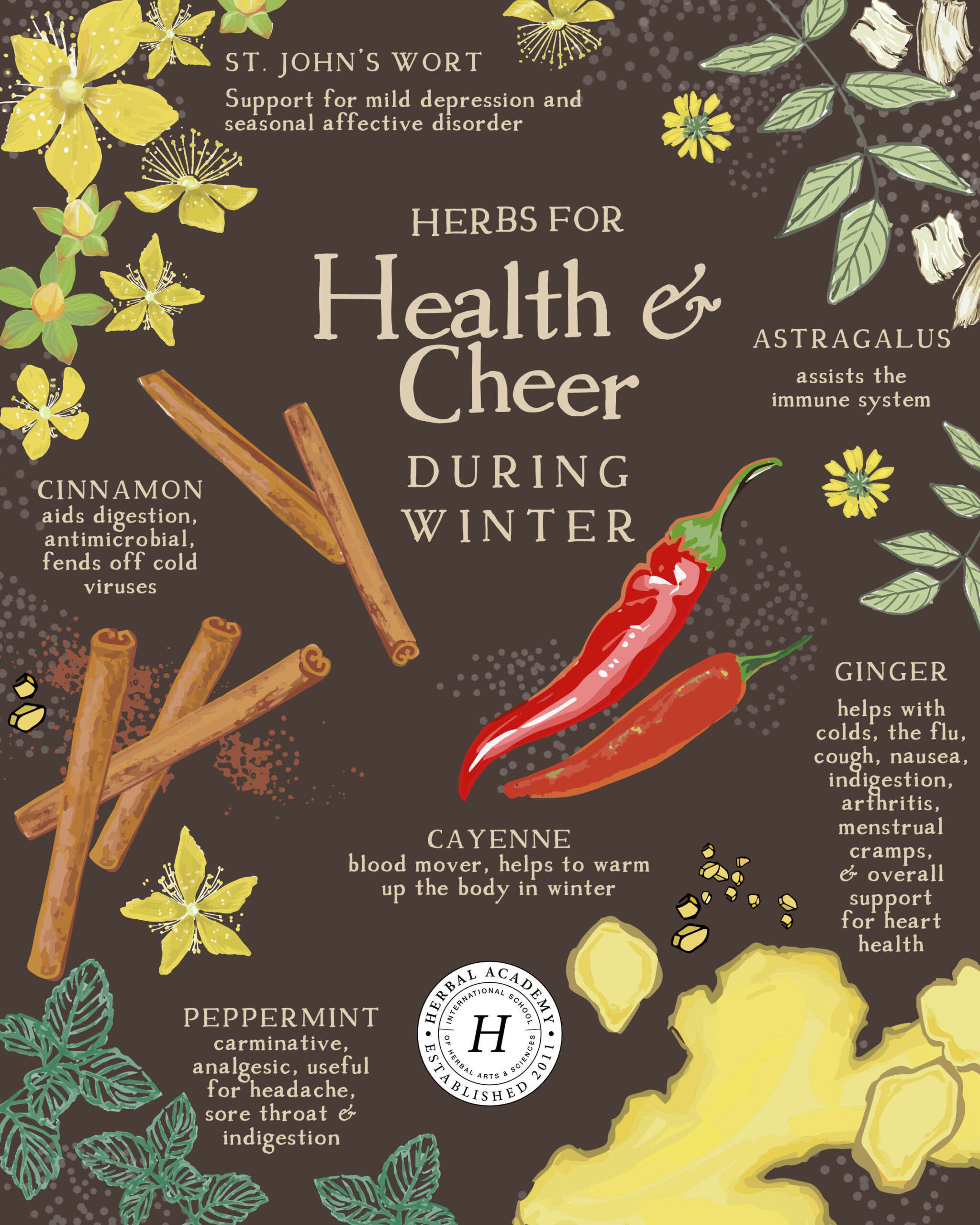
Herbs That Warm from the Inside Out
Especially for those who run cold, such as vata types, the use of warming herbs becomes increasingly important during winter. Fortunately, there are a number of tasty culinary spices that also support healthy circulation and digestive fire while offering a host of other benefits.
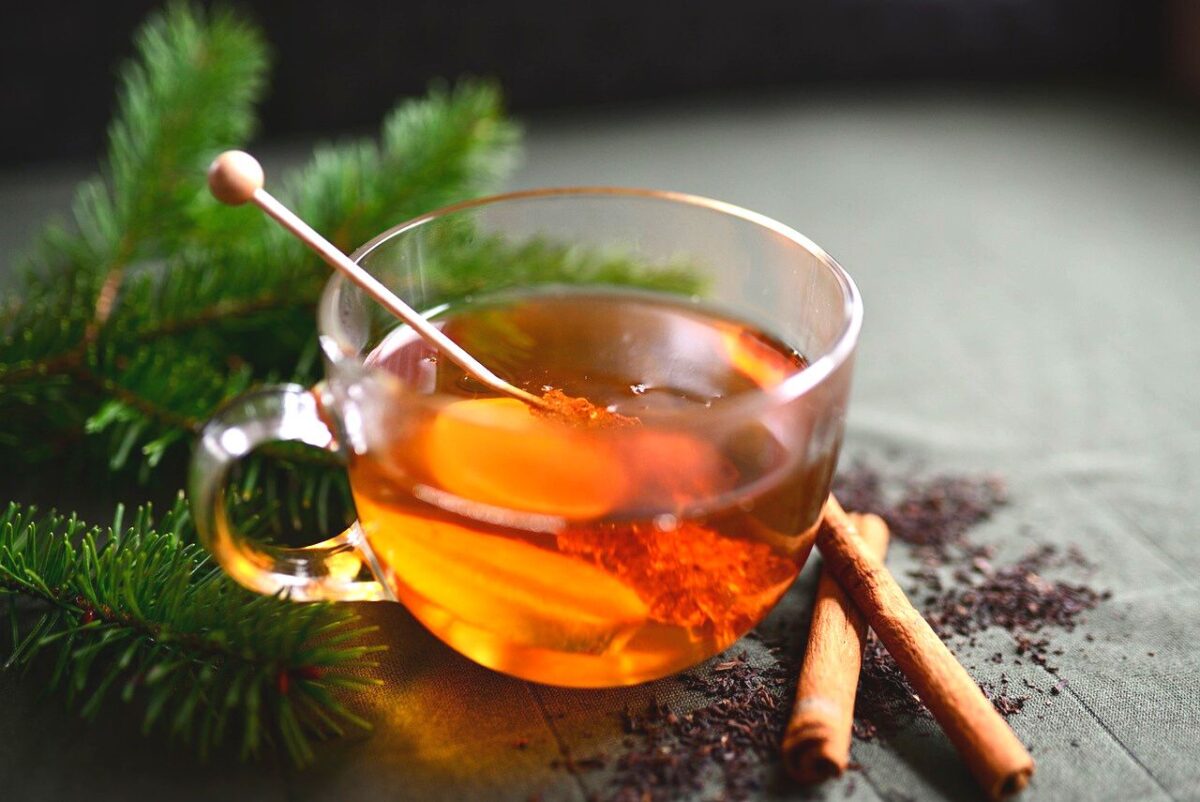
Cinnamon (Cinnamomum spp.) Bark
Cinnamon is not only a delightfully cozy, aromatic culinary spice, it also offers a number of health benefits that are particularly helpful in winter. It is an especially good herb for winter due to its circulation-boosting properties. Cinnamon is balancing for both vata and kapha doshas, and pitta types can use it in moderation. The combination of heat with a bit of sweetness and a slightly demulcent quality makes cinnamon an especially good choice for vata dosha and for fall and early winter—the vata time of year.
In addition, cinnamon is a carminative, meaning that it aids digestion, in part by soothing spasms and cramping in the gastrointestinal tract, thereby easing gas and bloating. Also, its anti-inflammatory benefits are helpful for a host of issues, including soothing an irritated gut lining, and it has antimicrobial properties, making it helpful in fending off colds and other viruses that tend to be particularly prevalent in winter (Groves, 2016).
As if cinnamon doesn’t offer enough already, it is also helpful for blood sugar balance—yet another reason why it is the perfect spice for winter, a time of year in which many of us indulge in more sweet treats. A number of studies have demonstrated that cinnamon is helpful in lowering blood sugar levels and supporting insulin sensitivity (insulin resistance being a major potential cause for a host of metabolic and endocrine issues) (Groves, 2016).
Ways To Enjoy Cinnamon
Yet another remarkable attribute of cinnamon is that there is no shortage of ways to enjoy this tasty spice. One simple method is cinnamon stick tea. Simply pour 1-3 cups of just-boiled water over 1-2 cinnamon sticks. Steep covered in a mug, thermos, or tea kettle for 30-60 minutes or more. You can then remove the cinnamon sticks or keep them in. Sip and enjoy the warming, comforting, circulation-boosting qualities of cinnamon. You can also add a bit of honey to your tea and/or jazz it up with a pinch of ginger powder. Using cinnamon as a stir stick for hot cocoa or cider is another easy and delightful way to enjoy cinnamon.
Here at the Herbal Academy, we have many ways to cook, bake, and brew with cinnamon. Here are a few more ideas!
Health Benefits of Cinnamon + 2 Warming Recipes
Warming Herbal Foot Soak With Cinnamon and Magnesium
Apple Cinnamon Stovetop Potpourri Blend
Herbal Spiced Apple Cider Recipe With Cinnamon, Chamomile, and Astragalus
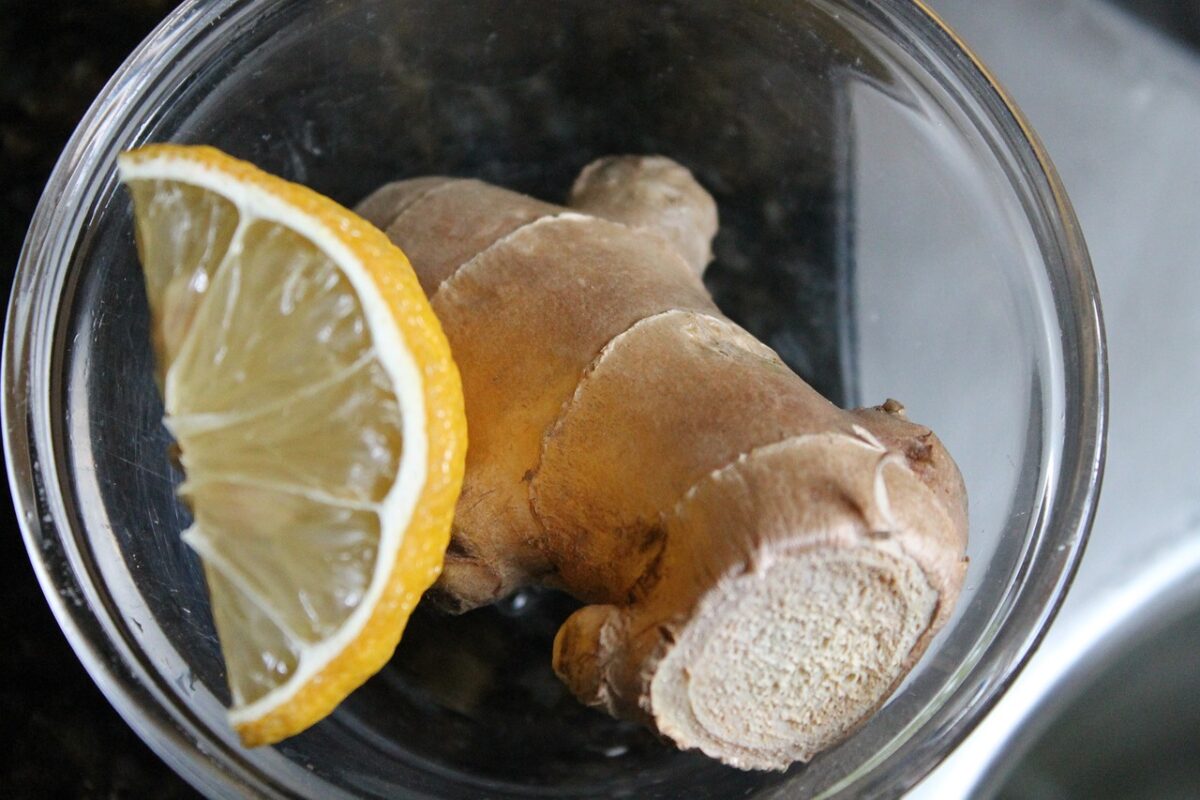
Ginger (Zingiber officinale) Rhizome
Another multifaceted wonder of the herb and spice world, ginger’s benefits are many! Ginger is revered across herbal traditions for its many usages and applications. According to Ayurveda, ginger balances both vata and kapha doshas (while pitta types should use it sparingly). The fresh rhizome is considered nourishing while the dried form is considered purifying (Dass, 2013). Fresh ginger also has antimicrobial properties, adding to the reasons for making it a top herb for health during winter.
Ginger is indicated for colds, the flu, cough, nausea, indigestion, arthritis, menstrual cramps, and as an overall support for heart health (Dass, 2013). It is one of the best agni (digestive fire) boosting herbs in Ayurveda. In fact, there is a simple ayurvedic practice of chewing on a small slice of fresh ginger 15 or so minutes before meals in order to boost digestion—perhaps a good tip for winter holiday feasts!).
Ginger Agni Booster
1 finger-sized piece of fresh ginger (Zingiber officinale) rhizome
Juice of ½ lemon or 1 lime
A pinch of salt
To Use:
Eat 1-2 slices approximately 15 minutes before meals. Additionally, you can take a small sip of the lemon/lime juice as the sour taste will also boost digestive fire.
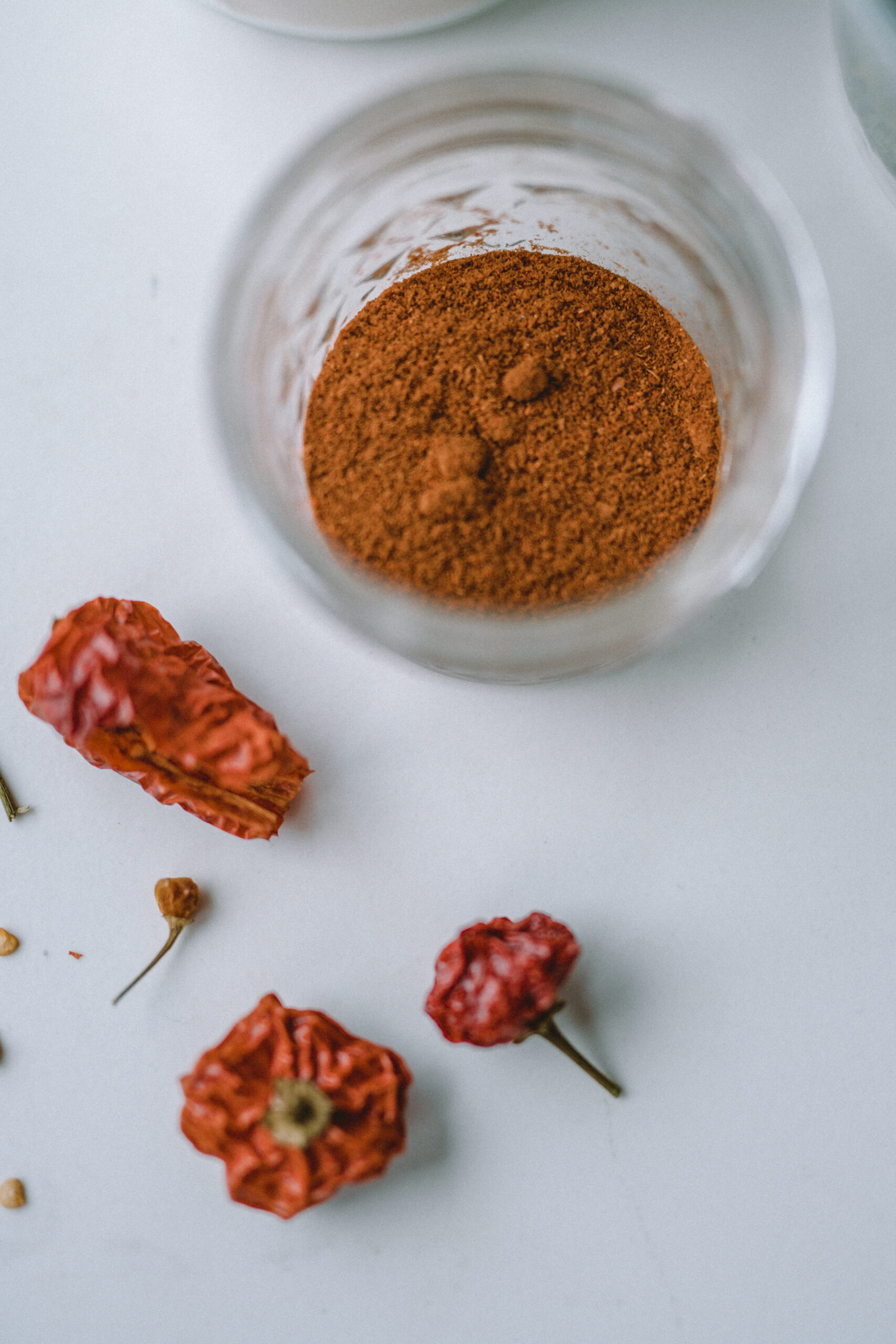
Cayenne (Capsicum spp.) Fruit
If cinnamon is gently warming, ginger is a bit hotter, and cayenne brings the heat. This hot pepper is best enjoyed by kapha types as the heat can be a bit too intense for vata and pitta doshas. However, all things in moderation, right? When it comes to cayenne, just a pinch will do. Sprinkle just a little on your food or add a very small amount to curries or homemade masala spice mixes.
If you can tolerate a little heat, there are plenty of reasons to add cayenne to your list of herbs for health this winter. First of all, cayenne is a blood mover. If you experience cold hands and feet in the winter, or just run cold in general, consider cayenne. This hot little pepper has other cardiovascular benefits as well. It may help dissolve blood clots and break down arterial plaque when used in small doses (Groves, 2016).
Cayenne or capsaicin cream can also be used externally to soothe pain and inflammation and to stimulate circulation. One appropriate use for this is in cases of osteoarthritis (Groves, 2016). Cayenne also has anti-inflammatory and endorphin-boosting effects (Groves, 2016), making it a great choice for promoting both health and cheer! Another effective way to enjoy cayenne pepper is in the cold season classic, fire cider. You can learn more about making fire cider in the HA post How to Make Fire Cider.
Supporting The Immune System for Winter
Holiday travel, gatherings with family and friends, and potentially more time spent indoors are all good reasons to fortify your immune system during winter. There are many herbs to choose from for this purpose and you will get to know your favorite standbys if you haven’t already. Mushrooms have become increasingly popular for their role in regulating the immune system. A few mushroom varieties in particular are helpful not only for fending off illness but also for helping the body’s ability to deal with stress. Good choices include reishi (Ganoderma lucidum), turkey tail (Trametes versicolor), shiitake (Lentinula edodes), and maitake (Grifola frondosa). You can get some basic tips on incorporating these mushrooms into your daily routine in the HA article Cooking with Edible Mushrooms: A Beginner’s Guide.
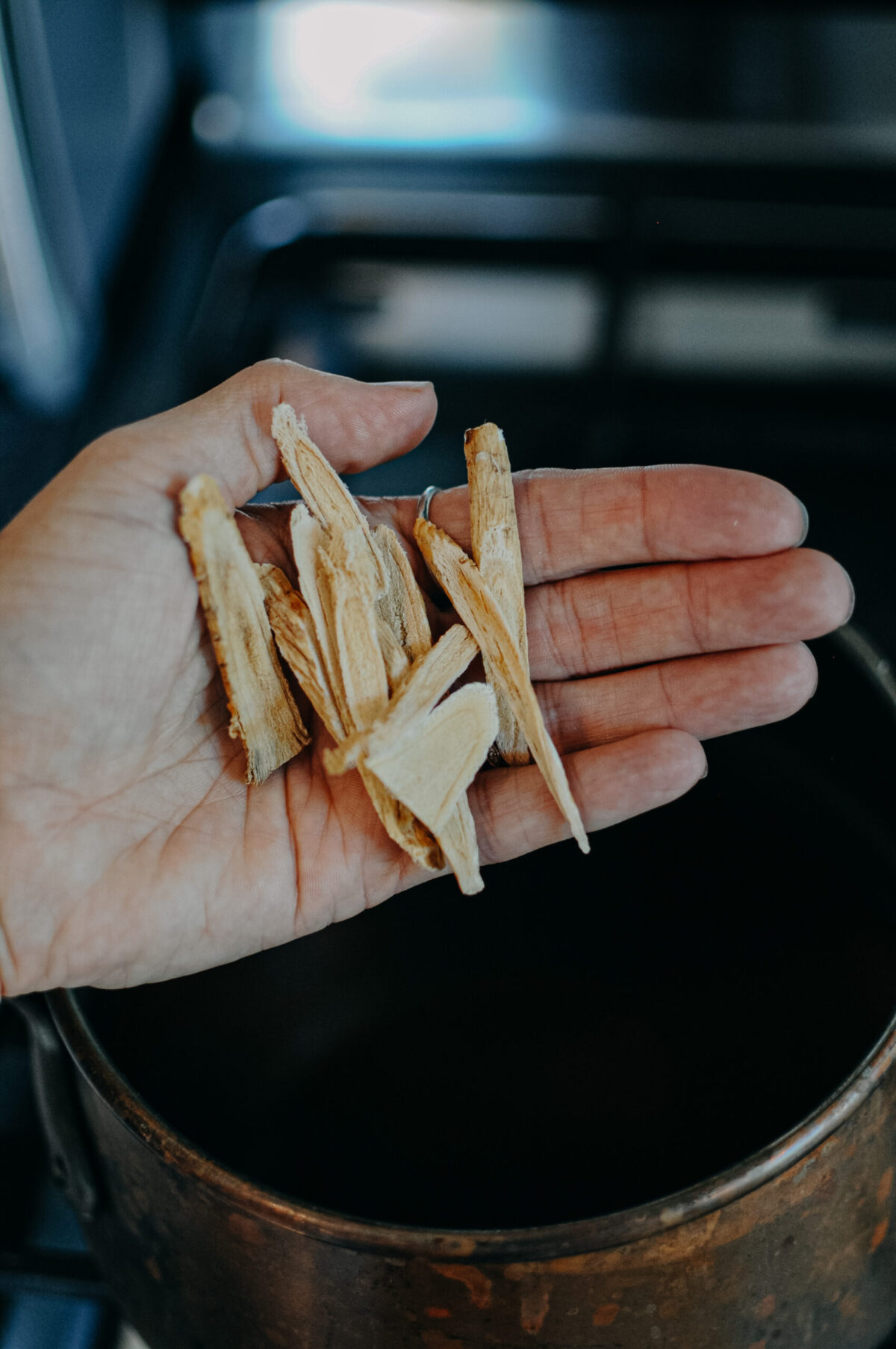
Astragalus (Astragalus mongholicus) root
Astragalus (Astragalus mongholicus) root is another favorite of mine in dealing with initial cold symptoms or low energy. This starchy root tastes fine as a stand-alone infusion. Or, it can be combined with other immune-boosting allies such as ginger or mushrooms, or mixed into soups, broths, and teas. A simple way to benefit from astragalus is to add ¼-½ teaspoon to a mug of miso soup. Sprinkle on a touch of cayenne and you have an excellent warming, circulation-promoting immune booster!
Astragalus has a warming energy, making it a perfect herb for winter. It assists the immune system in a similar way as many of the super mushrooms. Its starchy content essentially “trains” immune cells to become more effective at sorting out and destroying harmful pathogens (Groves, 2016).
Mood and Mind Support For Winter
Reduced exposure to sunlight can bring on the blues during winter. Here are a few ideas for herbs that can help uplift one’s spirits during the darker months.
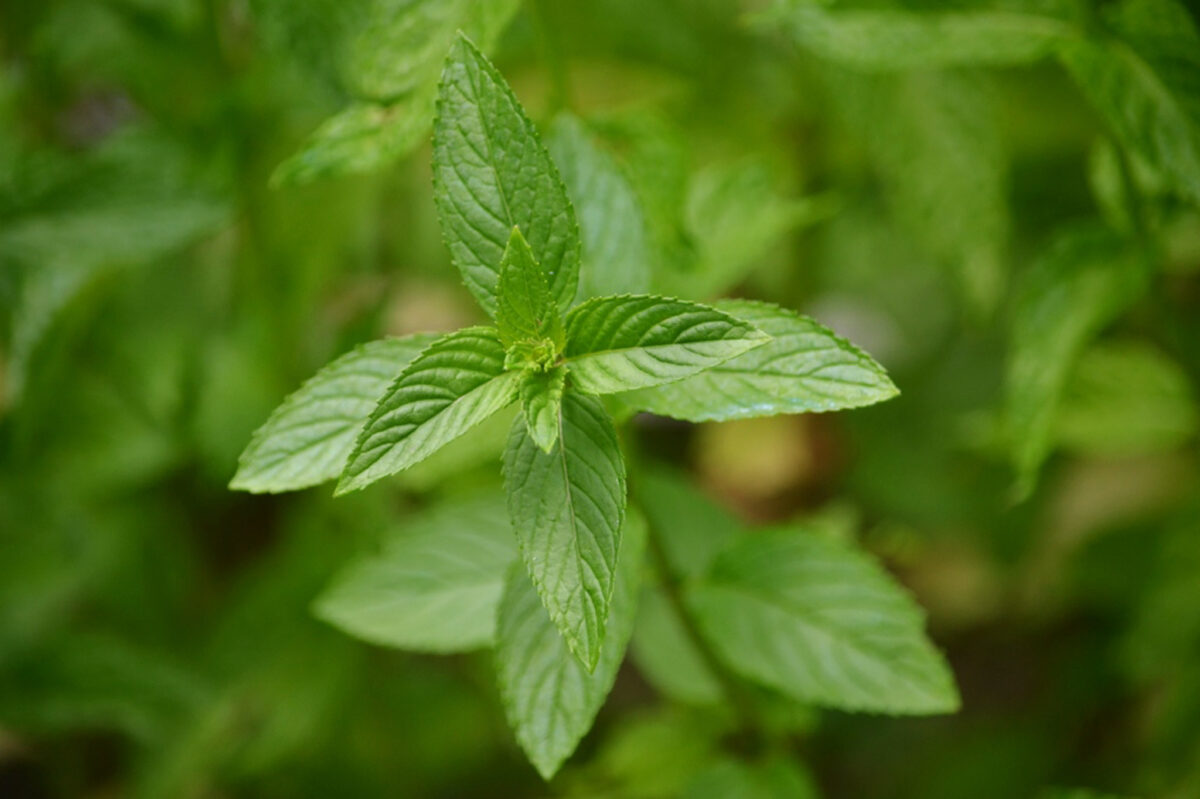
Peppermint (Mentha × piperita)
Peppermint (Mentha × piperita) is a nice option if you want to infuse your environment with a touch of cheer. Known for its applications as a carminative, analgesic, and for its usefulness in instances of headache, sore throat, and indigestion, peppermint may also assist with memory, cognition, alertness, and reaction time (Frawley & Lad, 2001; Groves, 2016).
I personally love the refreshing, cheerful aroma of peppermint. I enjoy infusing the essential oil into the air year round, but especially during the winter months. Peppermint tends to be a crowd pleaser, so it is an aroma that works well in offices and other places of business. I used to diffuse peppermint essential oil in the bathroom of my yoga studio and always received very positive reviews from customers!
A word of caution about peppermint: the essential oil is contraindicated for children under the age of 6 as it can cause slowed respiration. You can read more about essential oil safety and children in the HA article Safely Using Essential Oils for Children.
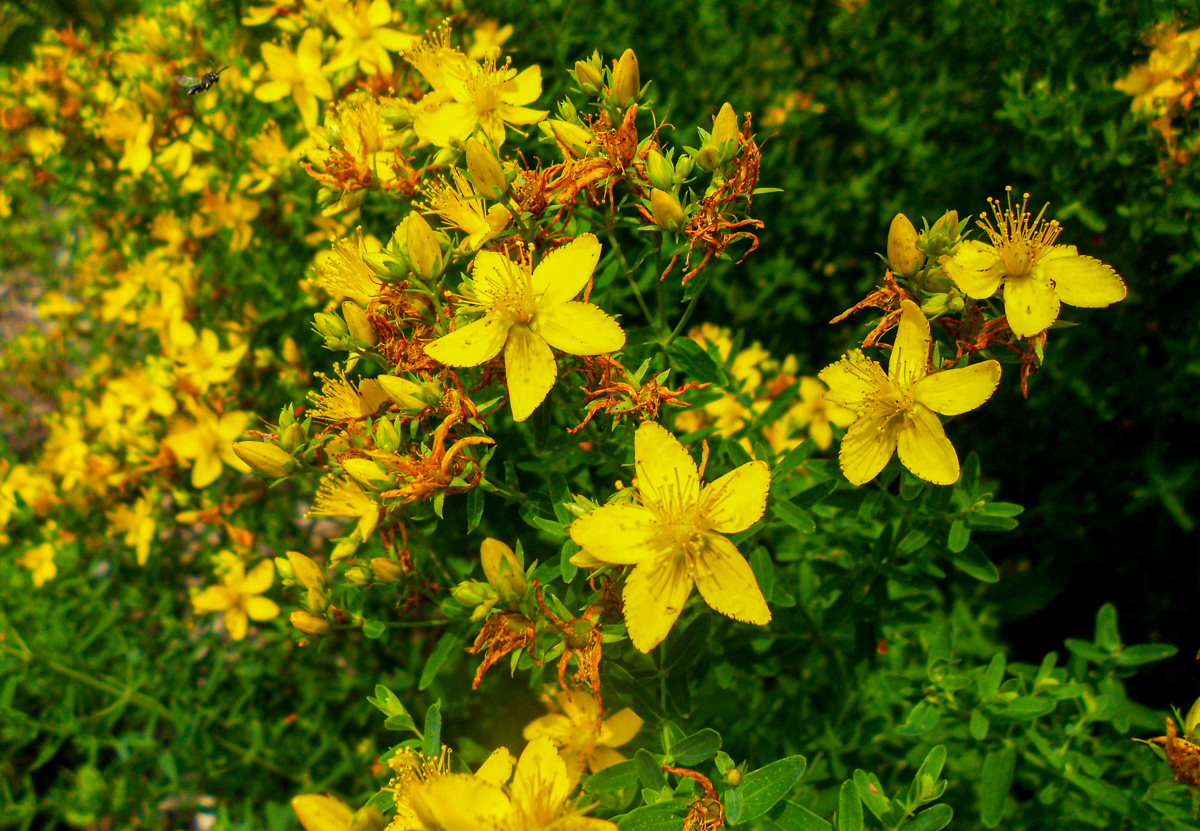
St. John’s Wort (Hypericum perforatum)
For more targeted mood support, you may want to consider St. John’s wort, an herb that is well-known for its effectiveness in instances of depression and seasonal affective disorder (SAD). St. John’s wort imparts a sunny energy and interestingly enough, the plant itself benefits from exposure to intense sunlight (Groves, 2016). Especially if you experience SAD or even milder cases of the winter blues, you may want to consider St. John’s wort. In addition, according to Ayurveda, St. John’s wort imparts sattvic, or clarifying/purifying, qualities and its cool energy makes it helpful for pitta-type mood issues (Dass, 2013).
There are a few cautions in using St. John’s wort. It can interact with several different medications, including oral contraceptives, so it’s a good idea to check interactions through a trusted source if you take medications. Also, it can cause photosensitivity and is not advised for use during pregnancy without monitoring by a health professional (Groves, 2016).
St. John’s wort can be taken internally as a tincture or infusion, or infused in oil and applied topically for inflammation and pain. Sourcing matters when shopping for St. John’s wort preparations—look for products made with fresh buds and flowers. Also, a red color in the oil or tincture indicates quality and effectiveness.
In Closing,
Herbs for health and cheer is a broad topic. There are many ways to boost your health and mood during winter—the ideas presented in this article are several tried and true options to get you started. When choosing herbal allies for winter you may want to consider what your personal challenges are during the colder, darker months. Whether your chief concerns are cold extremities, compromised digestion, susceptibility to colds and flu, or feeling low, there are many plant friends to offer benefits and support. Or, if you thrive during winter and simply want to celebrate the season with cinnamon treats and peppermint infusions, cheers to you!
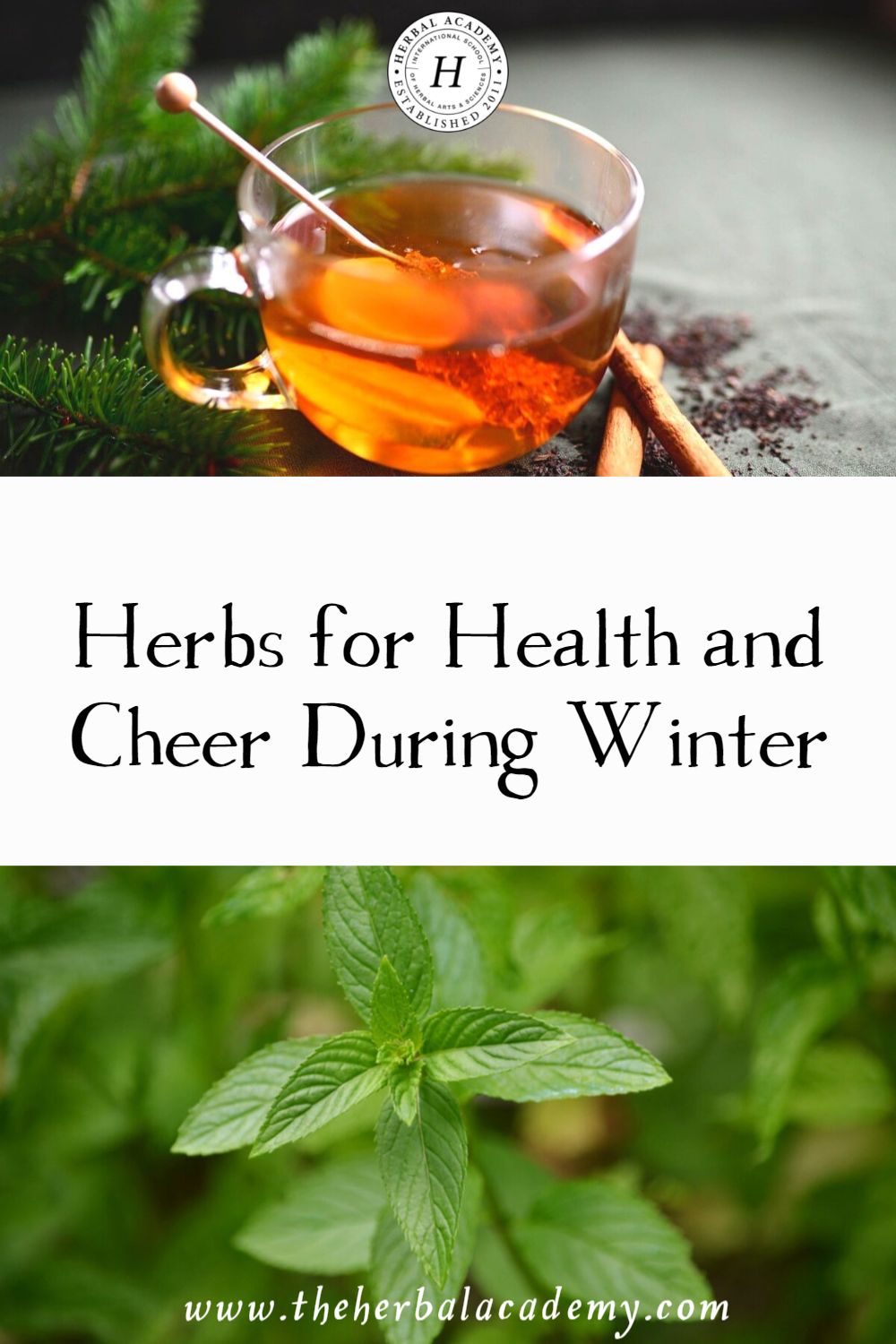
REFERENCES
Dass, V. (2013). Ayurvedic herbology East & West. Lotus Press.
Frawley, D. & Lad, V. (2001). The yoga of herbs (2nd ed.). Lotus Press.
Groves, M.N. (2016). Body into balance: An herbal guide to holistic self-care. Storey Publishing.








